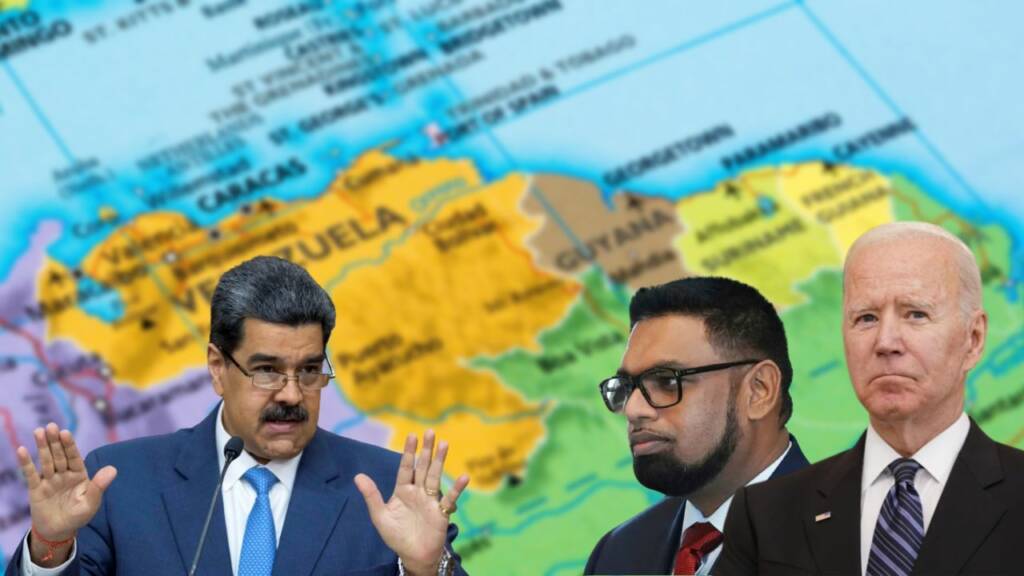Venezuela has issued a warning. It has made one thing very very clear.
And, if the US-backed Guyana continues to try and exploit the resources of the disputed area between the countries, it could lead to a serious escalation of tensions between the two nations.
On February 17th, the 57th anniversary of the Geneva Agreement, the Venezuelan government declared its sovereignty over the Essequibo region. It denounced its exploitation by transnational corporations. The Foreign Affairs Ministry reiterated the country’s commitment to the UN-brokered accord as the only legitimate solution to the ongoing territorial dispute.
The 1966 Geneva Agreement nullified the 1899 arbitral award that the British colonized Guyana had been granted by a five-person tribunal, who excluded Venezuelan representatives. The Agreement stipulated that a negotiated settlement should be reached between the two countries after Guyana won its independence in May of that year, yet no settlement has ever been realized.
But, what is the dispute all about?
Essequibo is a large region in Guyana, located west of the Essequibo River, which makes up about 60% of the country.
The Essequibo region has been the subject of a long-standing dispute between Guyana and Venezuela. For more than a century, both countries have made various claims to the area, but no resolution has been reached.
Caracas has continuously objected to Guyana’s breach of the 1966 agreement by permitting the ongoing extraction of resources from the Essequibo Strip, originally by gold transnational companies since the late 1880s and now by oil corporations.
Recently, a longstanding dispute about the 160,000-square-kilometer region was reignited in 2015 when large oil reserves were discovered in the Essequibo’s maritime waters, estimated to be 11 billion barrels. Since then, US-based Exxon Mobil has been drilling in the area after obtaining consent from the Guyanese government.
What does Guyana say?
The Guyanese government recently issued a statement asserting that “the Geneva Agreement does not require Guyana to abstain from conducting economic development activities in any part of its land or any related maritime territories.”
The same text declared that “any effort made by Venezuela to restrict Guyana’s exercise of its sovereignty and legal right would be contrary to the Geneva Agreement and the principles of international law.”
Since Exxon discovered oil in 2015, other oil companies have become interested in Guyana, leading Washington to recognize the 1899 arbitral award. On January 2023, US energy corporation Hess, who works with Exxon in Guyana, drilled a well in Essequibo’s waters. This makes it a total of 30 oil discoveries so far, and another 63 wells are planned to be drilled over the next three years.
Read More: US Turns to Peru in Pressure Campaign Against Colombia-Venezuela ties
Given support from Washington, Guyana brought its case to the United Nations’ International Court of Justice in 2018 and it was determined that the ICC had the authority to resolve the dispute. The Nicolás Maduro government refused to recognize the court’s authority and called for direct negotiations with Guyana, but Georgetown has consistently refused to do so.
Overall, Venezuela’s warning to US-backed Guyana is a sign of increasing aggression and could have serious implications for the region. The US has aggravated the crisis by supporting Guyana to support its capitalistic tendencies. It’s looting Guyana. The warning by Venezuela is potential for military conflict, as well as the economic and political repercussions. It could have far-reaching consequences for the stability of the region. It is therefore essential that both Venezuela and Guyana take steps to resolve the dispute peacefully, in order to avoid any further escalation.
